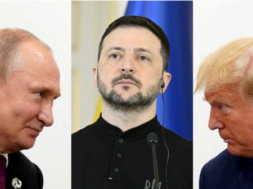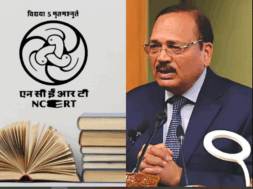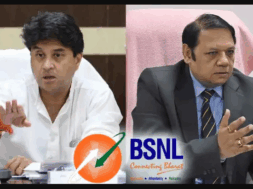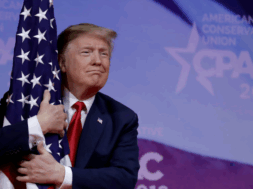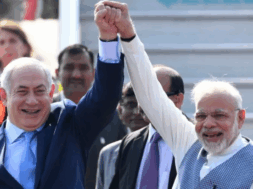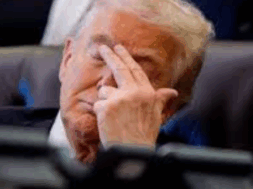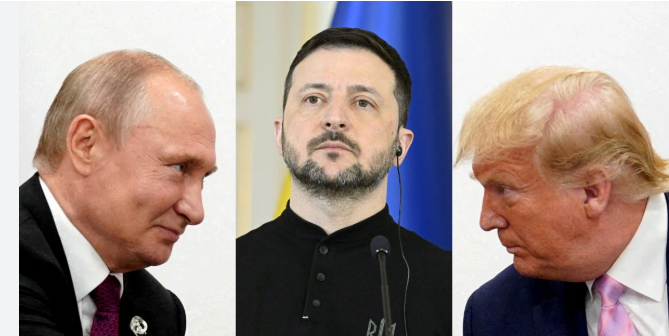
Roving Periscope: The US signs 30-day ceasefire deals with Russia and Ukraine
Virendra Pandit
New Delhi: In the ongoing US-brokered deals, Ukraine and Russia have agreed to a temporary ceasefire in their over three-year-old war, promising to refrain from attacking energy infrastructures and ensure unhindered Black Sea navigation, the media reported on Wednesday.
Earlier, the US said it had made separate agreements with Kyiv and Moscow to ensure safe navigation in the Black Sea and to implement a ban on strikes against energy facilities in the two countries.
The 30-day moratorium on strikes on energy infrastructure starts March 18 but could be extended by mutual agreement. The first deal emerged after the prolonged US-Russia talks in Saudi Arabia this week.
Ukrainian President Volodymyr Zelenskyy said a truce covering the Black Sea and energy infrastructure became effective immediately on Tuesday and that he would seek more weapons and sanctions on Russia from US President Donald Trump if Moscow broke the deals.
“If the Russians violate this, then I have a direct question for President Trump. If they violate, here is the evidence – we ask for sanctions, we ask for weapons, etc,” Zelenskyy told reporters at a news conference in Kyiv.
Oil refineries, oil and gas pipelines and nuclear power stations are among the targets on which Russia and Ukraine agreed to temporarily suspend strikes, the Kremlin said on Tuesday.
A list appearing on the Kremlin’s Telegram channel also included fuel storage facilities, pumping stations, electricity generation and transmission infrastructure, such as power plants, substations, transformers, distributors and hydroelectric dams.
The list had been “agreed between the Russian and American sides,” the Kremlin said. Ukraine, which had earlier agreed to a 30-day ceasefire, was, however, kept out of the diplomatic exercise between the US and Russia in Jeddah, Saudi Arabia.
In Kyiv, Zelenskyy said Ukraine had presented US officials during talks with a list of facilities to be covered.
If the agreement is breached by one party, the other party is also released from compliance, the Kremlin added.
The White House announced on Tuesday that Russia and Ukraine have agreed to a ceasefire in the Black Sea and will begin discussions on halting attacks on each other’s energy infrastructure– a notable shift in a war that has defied diplomatic resolution for over two years.
But the details of the deal, and the conditions set out by Moscow, suggest it is not just a truce on the table– it may also be the first serious test of whether US-led sanctions on Russia are beginning to erode.
The agreement followed a March 18 telephonic conversation between US President Donald Trump and his Russian counterpart Vladimir Putin, the first direct contact between the two leaders since the Republican leader took office on January 20 for a second term in the White House.
The deal is the most concrete sign yet of Trump’s stated aim to end the war in Ukraine, but it comes with significant strings attached.
While the US presented the ceasefire as a mutual understanding between Russia and Ukraine, the Kremlin quickly moved to define its own terms.
Shortly after the US announcements, the Kremlin said the Black Sea agreements would not come into effect unless links between some Russian banks and the international financial system were restored.
According to reports, central to Moscow’s demands is the reconnection of Russia’s agricultural lender, Rosselkhozbank, to SWIFT– the global payments system from which several Russian institutions were removed in 2022 following the invasion of Ukraine on February 24, 2022.
Restoring Russia’s access to SWIFT would mark the most substantial reversal of sanctions since the war began. And while Washington’s agreement with Kyiv focuses narrowly on maritime security, its parallel deal with Moscow reportedly includes a commitment to help seek sanctions relief– especially for agricultural and fertiliser exports, a long-standing Russian demand.
The White House has directed the State and Treasury departments to draft a list of sanctions on Russia that could potentially be eased.
President Zelenskyy said the truce agreements did not require sanctions relief to come into force and would take effect immediately, calling the Kremlin’s statement an attempt to “manipulate” the deals.
The conflicting interpretations are a reminder of just how fragile the deal is– and how divergent the priorities of the parties remain.
